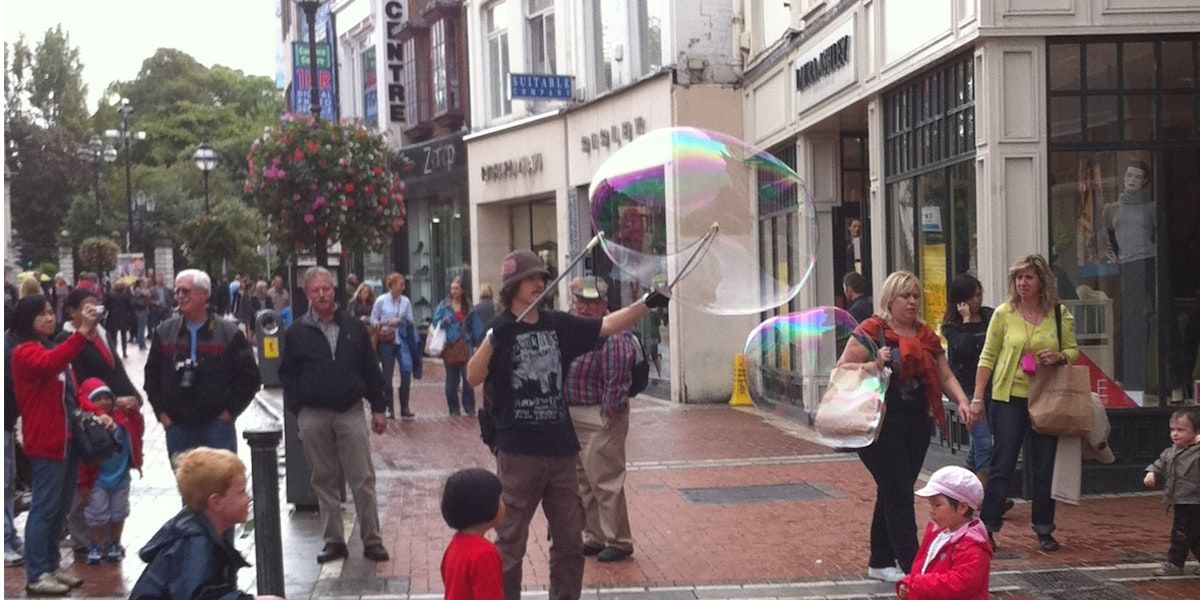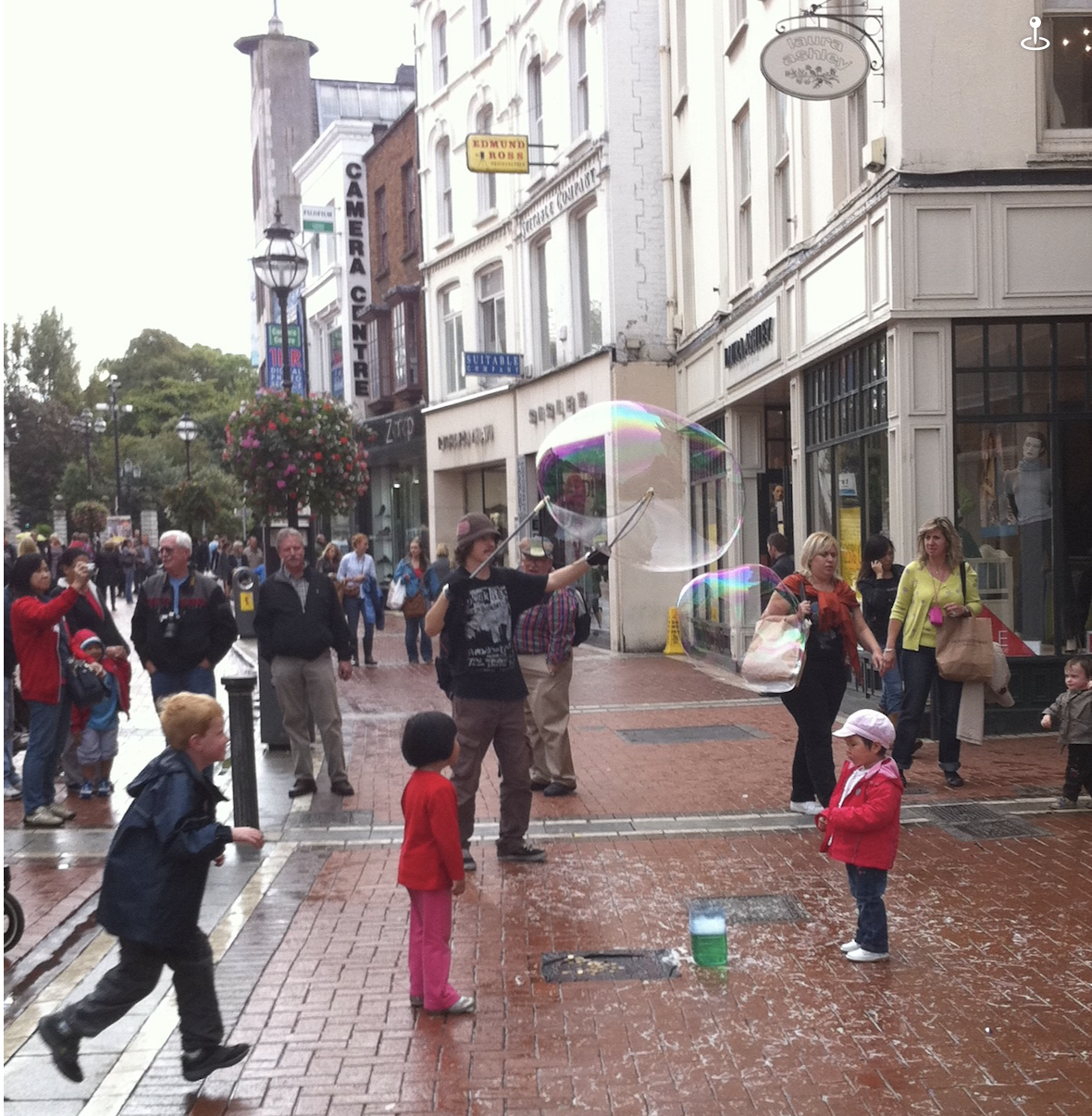The Gist: Far-left Riots And Other Tall Tales
It's time to face up to our responsibility as an email and actually do an Irish news roundup. This is the Gist

Grafton Barbarism
Fascism loves violence. It draws its power from involving and implicating increasing numbers of people in the transgression of violence, which they then struggle to justify to themselves and each other rather than reverse course.
To that end, it chases the heat of public disquiet- emphasising division, amplifying distress and then goading people to blame rather than understanding. In this way it acts as a sort of physical manifestation of a late night radio call in show, only one that would like to kill the guests too.
If people are upset about something- being stuck in their house for the longest economic shutdown in the EU, say - fascists will act to funnel that heat towards their goal of violence as a means to power. As most people have busy lives which tends them towards assessing the most recent things they’ve heard in the context in which they hear them (as opposed to a decades-long context of all the previous things a person has said to indicate they are a fascist) this is a model which works as long as our heat-chasing fascist is provided with platforms to transmit their words to enough people.
However, once fascism has gathered enough adherents it will use them to commit acts of violence. Remember, very many of those adherents would recoil at the thought they were fascists. ‘I am solely motivated in ensuring a high-quality reliable train network’, they would explain, ‘and have never been as interested in the genocide side of our party platform.’
The problem for society at large is that, once people are adhered to a fascist platform- whatever the reason that was originally used to draw them in- they will continue to justify that past decision by rejecting any evidence that they were wrong as false.
In doing so they will cast about for evidence that they were right all along. And, by the nature of evidence that suggests that joining a fascist movement was a good idea, it too will be wrong.
This impulse is not unique to fascism, but is just how people who make any and all errors of judgement in their opinions are wont to behave, as 10-15 minutes on any social media platform of your choosing will demonstrate.
But every step is a step down, a step deeper. Because once you’re arguing that protesting outside the Dáil with nooses is OK, you’ve to then justify that mistake by arguing that assaulting political opponents with beams of wood to the head was right too. And then you find yourself arguing that firing explosive rockets at policemen’s faces in a premeditated attack should be looked at in a sympathetic context.
And, just like that, you’re a fascist. All because you couldn’t accept the alternative of admitting you were wrong once.
Things True and False, for Balance
The Garda Commissioner, Drew Harris, spoke after his force was attacked by the aforementioned fascists. He wanted to acknowledge the danger his policewomen and men had faced and try to convey his awareness of the nature of this network of heat-chasing groupings.
Here’s how RTÉ reported his statement;
Mr Harris said there was a conglomeration of groups involved in demonstrations including anti-maskers, anti-vaccination groups, anti-lockdown groups, and elements of the far-left and far-right.
"No one group that we saw today was one set of individuals. This was groups working in concert with each other, as a group, as a mob," he said.
It was self-evidently wrong to suggest that ‘far-left and far-right’ groups were working in concert with each other and (despite an incoherent attempt by the Minister for Justice to invent a justification for what the Commissioner had said in the meantime) by the following day he had withdrawn it.
Before passing over the incident it is worth thinking about what it said about the changes to what Irish institutions have always taken for granted that the shared events of the last few years have wrought.
Four years of Trumpism culminating in an insurrectionary attack on the US legislature has undermined the reflexive institutional impulse to assert that all critics of the status-quo are equally dangerous. The public, rightly, just don’t think they are.
The Garda Commissioners of old would never have issued a correction. They would have followed the Department of Justice’s path of justifying the error with more wrong statements. This is evidence of institutional learning.
We also glimpsed something else- the Irish Garda Commissioner’s career background in Northern Ireland leaves him seeing political divisions as zero-sum games. In policing them he instinctively balances everything between two extreme poles. Any blame for one is reflexively accompanied by blame for the other, for balance, in case he be accused of supporting one side over the other.
But this is a reflex born of Northern Ireland’s particular political circumstances. It doesn’t map onto the difficulties of policing a radicalised right.
We have to be able to accurately describe the political roots of violence before we will be able, as a society, to successfully tackle it.
Here’s a better use for Grafton Street. I look forward to seeing more of this again in the future.




